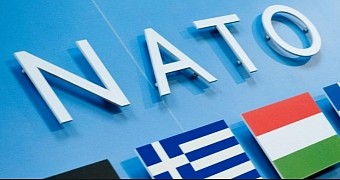NATO has become a target for more hackers worldwide, a spokesperson for the military alliance said this week, revealing that an average of 500 attacks are recorded every month.
The organization recorded an increase of approximately 60 percent in the number of attacks last year versus 2015, Oana Lungescu, NATO spokesperson, told CNN.
As far as the identity of the hackers is concerned, investigations were indeed launched, but in most of the cases, finding whoever attacks the alliance is pretty difficult.
“Foreign governments, criminals and terrorists can all be the source of cyberattacks, and attribution can be difficult,” Lungescu was quoted as saying. “But of course, nations have the largest resources in the cyber field, and they are responsible for the majority of targeted attacks against NATO networks.”
Cyberattacks to be considered conventional attacks
NATO decided in mid-2016 to treat cyberattacks the same as a conventional armed attack, warning that foreign hackers trying to breach governments of its members might face a response from the entire alliance under the mutual defense clause called Article V.
“We have decided that a cyberattack can trigger Article Five, meaning that (a) cyberattack can trigger a response from the whole alliance as a conventional armed attack,” Jens Stoltenberg, Secretary General of North Atlantic Treaty Organization (NATO), warned.
“We are doing more when it comes to cyber defense because we have to understand that cyber-attacks can be as dangerous, as serious as armed attacks.”
Russia is most often believed to be the main actor behind cyberattacks aimed at governments, and the United States itself criticized Kremlin for allegedly trying to disrupt the election process that eventually led to Donald Trump being elected President.
At the same time, European governments also warn that Russian hackers might launch attacks against their computers, with the purpose of wreaking havoc during elections.
Russia, on the other hand, denied all claims, saying that its government itself was the target of hackers, explaining that it discovered evidence of a foreign intelligence agency that planned to take down its banking system in December.

 14 DAY TRIAL //
14 DAY TRIAL //